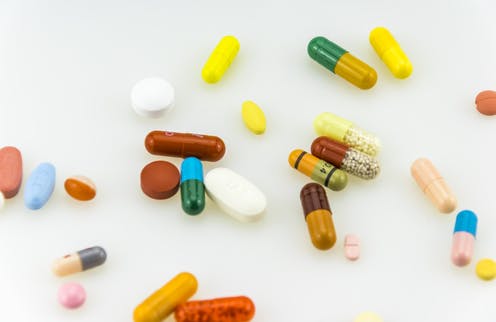
For decades oil companies denied that their products were harmful to human health. Pesticide companies did the same with their products. We all know how executives from cigarette companies lied about the harms from smoking.
Are drug companies any different? When drugs are taken off the market because they are either unsafe or don’t work, do companies admit that there are problems? There is certainly some evidence that companies deny the evidence.
Researchers in the United States published a meta-analysis in the New England Journal of Medicine (NEJM) in 2007 showing an association between the diabetes drug rosiglitazone and a significant increase in the risk of a heart attack. The response from GlaxoSmithKline, the maker of the drug, was that the company “strongly disagrees with the conclusions reached in the NEJM article, which are based on incomplete evidence and a methodology that the author admits has significant limitations.”
In another case, a 2001 article in JAMA: The Journal of the American Medical Association raised “a cautionary flag about the risk of cardiovascular events with COX-2 inhibitors,” a type of non-steroidal anti-inflammatory drug used to treat pain and inflammation. Merck was the company selling one of these drugs and an employee of Merck Research Laboratories and a Merck consultant claimed that “the analysis provides no substantial support for their conclusion.”
But these might have been isolated examples. In a recently published article, I set out to answer the question in a systematic manner.
Withdrawn drugs
As a first step, I compiled a list of all the drugs that Health Canada had pulled from the shelves since 1990 either because they had serious safety problems or because they didn’t work. Putting that list together was not easy because of the way that Health Canada organizes information. I had to go through thousands of safety notices and warnings since 2000 on Health Canada’s website, and then combined what I found with the information in an article that I published in 2014.
In the end, I had the names of 31 drugs. Then I looked for either press releases from the companies about those drugs or articles containing direct quotations or paraphrases of company statements, and found material about 22 drugs.
Almost half the time (10 of 22 drugs), the companies disagreed with the decision to withdraw the drug from the market, and in just under one-third (seven of 22 cases) they agreed with the decision. In the other five cases they felt that the drug could have been kept on the market with restrictions or said that they might reintroduce the drug.

(AP Photo/Julio Cortez)
Here’s what Novartis said about its anti-inflammatory drug Prexige, which was linked to cardiac deaths: “We’re disappointed with Health Canada’s decision. We don’t agree with the assessment of the data.”
A Bristol-Myers spokesman said the company “still believes that prescribing physicians believe Serzone has a role to play in the treatment of depression.” Serzone was associated with liver damage.
On the other hand, a minority of companies had no objections to the action taken by Health Canada. Bayer’s Canadian general manager said in an interview in 2001 about the withdrawal of a cholesterol drug, “We have taken the responsible route based on increased reports of side effects.”
The strength of the evidence that leads to decisions that a drug is too unsafe to be left on the market can vary significantly, but that didn’t seem to affect what companies had to say. In the three cases with the strongest evidence for a withdrawal, companies agreed with the withdrawal only once.
It does appear that companies have recently become less defensive about their drugs. Up until 2009, they objected to Health Canada’s decision nine out of 14 times, whereas since then they have agreed in five out of eight cases.
The need for transparency
There are many, non-exclusive reasons why a company might defend its drug: a commercial motivation to see the drug brought back onto the market; defending the corporate image and integrity; a different scientific interpretation about the nature of the evidence used to withdraw the drug from the market; and an agreement about the safety problem but a different assessment about the overall benefit-to-harm ratio of the drug.

(Pexels/Anna Shvets)
Finally, does it really matter if companies object? After all, the drug is still no longer being sold.
The answer is yes. It’s important for the public to have confidence in the rigour of regulators’ decisions. For example, documents released by the U.S. Food and Drug Association (FDA) showed that drug company Janssen engaged in “extensive” efforts with the FDA over the wording of a safety warning about the risk of lower limb amputation associated with the use of canaglifloxin, a drug used in the treatment of diabetes. Due to the redaction of large sections of the document, it is not possible to know how extensive the changes were.
Health Canada typically engages in interactions with companies before taking any action with respect to safety issues. The frequent defence of safety by companies raises the question about what effect, if any, the positions they take during interactions with Health Canada have on eventual safety actions that Health Canada takes.
The 2011 Auditor General’s report pointed to serious problems in the way that Health Canada communicates with the public and health-care professionals about drug safety problems, such as not disclosing information on the status of conditionally approved drugs.
In order to reassure Canadians that their interests are coming first, Health Canada should be completely transparent about how it evaluates safety information and makes safety decisions. We need to know that companies’ claims about the safety of their products are not altering decisions that Health Canada makes.
![]()
In 2018-2021, Joel Lexchin received payments for being on a panel at the American Diabetes Association, for talks at the Toronto Reference Library, for writing a brief in an action for side effects of a drug for Michael F. Smith, Lawyer and a second brief on the role of promotion in generating prescriptions for Goodmans LLP and from the Canadian Institutes of Health Research for presenting at a workshop on conflict-of-interest in clinical practice guidelines. He is currently a member of research groups that are receiving money from the Canadian Institutes of Health Research and the Australian National Health and Medical Research Council. He is a member of the Foundation Board of Health Action International and the Board of Canadian Doctors for Medicare. He receives royalties from University of Toronto Press and James Lorimer & Co. Ltd. for books he has written.





























